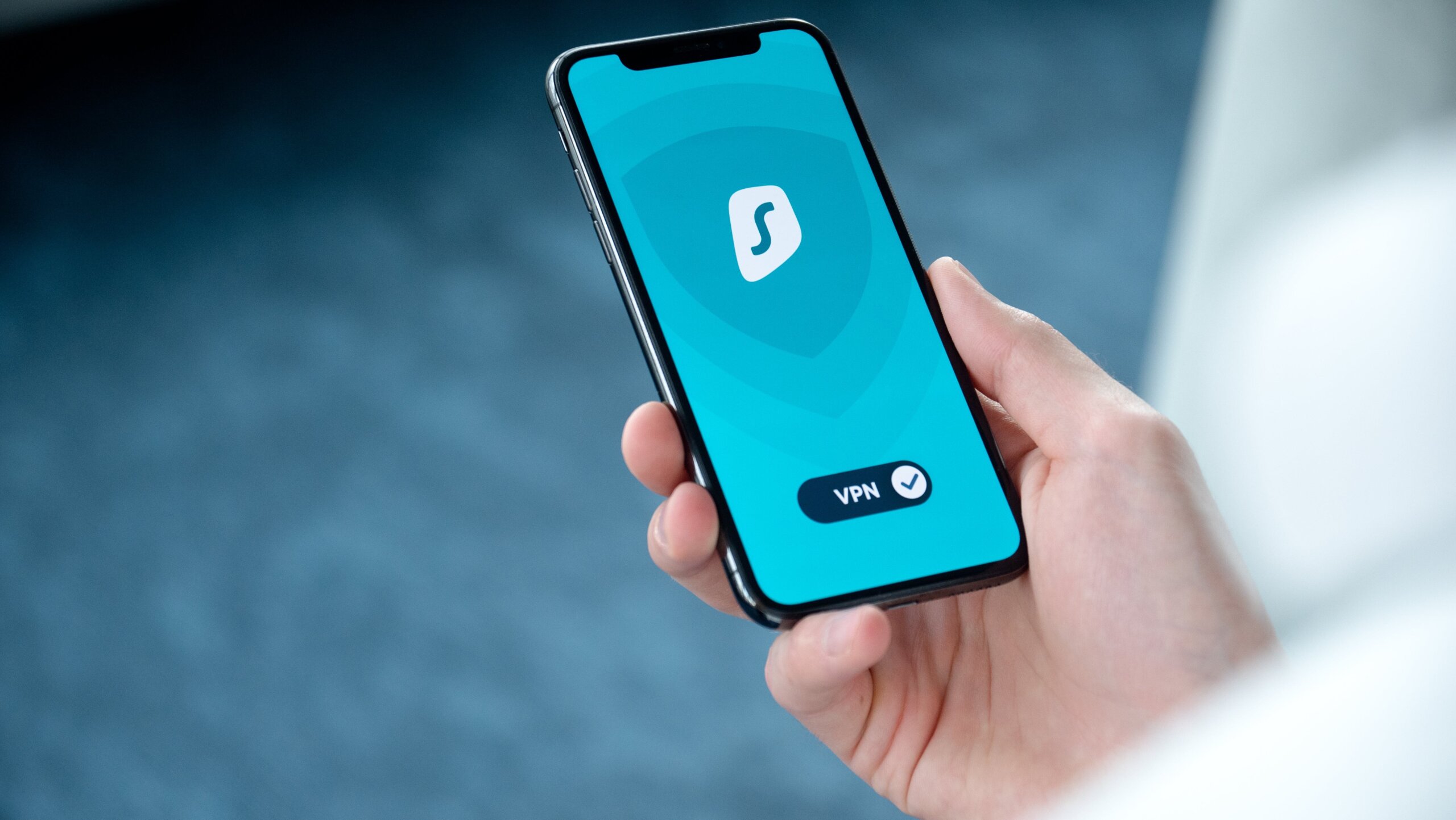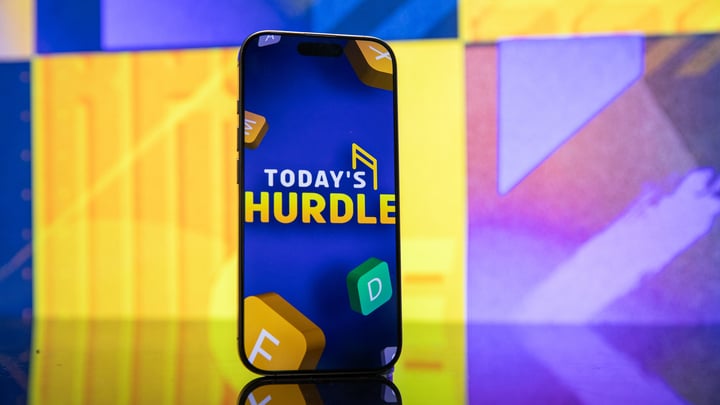Tech
The best VPN in March 2025

VPNs are useful security tools that can protect your identity and data, bypass online restrictions to access extra content, and much more. If this is all very new to you, you've probably got a lot of questions. Don't worry, because we can help.
We've done all the hard work for you and thoroughly researched these services to provide the information that matters to you. Here's everything you need to know about VPNs.
What is a VPN?
VPNs (or Virtual Private Networks) provide important protection for your data and identity when you're online. They offer this online privacy and anonymity by creating a private network that hides your real IP address (digital location). This means that all of your activity is untraceable and secure.
Basically, you can think about VPNs as encrypted tunnels through which all of your online traffic passes through. Nobody can see into the tunnel, and everything inside the tunnel is protected against online threats like viruses, hackers, and malware.
Do you need a VPN?
Any sort of activity on an unsecured WiFi network leaves your private information and browsing habits exposed to the world, unless you're using a VPN. There's no need to panic, because whether you're sending important emails, doing some online shopping, or paying essential bills, VPNs make sure that everything remains private and anonymous.
First and foremost, VPNs are designed to provide online security, but there is another reason that millions of people use these services: streaming more content from around the world. By hiding your real IP address and connecting you to a server in another location, you can trick your favourite streaming services into thinking that you are based in a different country. This means that you can watch all of the shows and films from global libraries, like all the extra content on U.S. Netflix. This is the quickest and easiest way of boosting your content options, without the need to rely on a dodgy stream.
What should you consider before subscribing to a VPN?
There are plenty of things that you should consider when it comes to VPNs, but we don't have all day. Instead of listing off every feature offered by the best VPNs, we have highlighted a selection of the most important things to think about.
Before you make any sort of decision, you should look out for connection speed, server network, number of logins, and more important features:
-
Bandwidth — There are some VPNs out there that place monthly caps on network bandwidth, meaning you can only download a certain amount of data. You should avoid these services, unless you're on a free trial. If you're paying for a VPN, you should be able to download and upload as much as you want.
-
Connection speed — Using a VPN is going to produce a drop in your connection speed, but you shouldn't accept a significant drop that is going to result in buffering. Be sure to select a VPN that doesn't negatively impact your connection speed to the point that you can't watch a film or download a file without frustration.
-
Encryption — There are different levels of encryption, and whilst it's important to take note of the grade provided by your VPN, the best options will all offer powerful protection for your data. You are likely to come across terms like "military-grade" and "enterprise-grade," which just means that you can rely on it to do its job.
-
Number of connections — Some VPNs let you connect an unlimited number of devices with the same account. Others limit you to just a single device. You should look out for a service that offers multiple simultaneous connections, so you can stay protected on all your devices at the same time.
-
Server network — The very best VPNs provide access to literally thousands of geographically diverse servers. It's useful if a VPN has a lot of servers in key locations, because you should always be able to find a stable and speedy connection for streaming, shopping, or browsing anonymously. It's not a straightforward case of more is better, but it's always good to have options.
-
Privacy policy — It's worth paying special attention to the data-handling, storage, and usage practices of the VPN you are planning on using. These practices should be laid out in a privacy policy, and if they aren't clear, it's best to avoid. Most VPNs require access to your IP address, online transactions, and browsing history, plus your personal details when you sign up. If privacy is the objective, it's absolutely essential that your VPN is not going to store these details. If it does, the whole thing is kind of pointless.
There are other things to consider, like price and subscription plans, but these features are a good place to start.
Should you use free VPNs?
There are plenty of free versions of popular VPNs, plus free trials of VPNs with full access to everything you get with a premium plan. So why would you ever pay for a VPN?
As with most things in life, you get what you pay for with VPNs. There tends to always be a catch with free versions, and it's normally in the form of limited data usage. If you're just an occasional user, these plans will work fine. But if you're going to be streaming or downloading, this isn't going to work. Free trials are a little bit different: they come with everything you get in a paid plan, but obviously they don't tend to last very long. Trials are great for testing out a service before committing, but this isn't a long-term solution.
What we're saying is that the best option for streaming securely and accessing the online world without restrictions is with a paid subscription to a VPN. To gain access to advanced security features without limitations on usage, you need to pay up. The best VPNs are generally the most expensive, but there are plenty of cheap plans out there, especially if you're willing to commit to a lengthy contract.
What is the best VPN?
There are a lot of VPN providers out there all offering different sets of features, with different pricing structures. We recommend taking some time to carefully access your options, and decide on what you really need from a VPN. Once you have established your priorities, you can check out this definitive list of the best VPNs this month.
We have tracked down everything on offer and lined up a selection of the very best VPNs for streaming, shopping, and everything else. We have tried to find something for everyone and every budget, and you can find popular services like ExpressVPN, NordVPN, and CyberGhost VPN in this list. All you need to do is weigh up these options against your own set of priorities, and then pick a favourite from the bunch.
These are the best VPNs in 2025.
Tech
Hurdle hints and answers for September 24, 2025

If you like playing daily word games like Wordle, then Hurdle is a great game to add to your routine.
There are five rounds to the game. The first round sees you trying to guess the word, with correct, misplaced, and incorrect letters shown in each guess. If you guess the correct answer, it'll take you to the next hurdle, providing the answer to the last hurdle as your first guess. This can give you several clues or none, depending on the words. For the final hurdle, every correct answer from previous hurdles is shown, with correct and misplaced letters clearly shown.
An important note is that the number of times a letter is highlighted from previous guesses does necessarily indicate the number of times that letter appears in the final hurdle.
If you find yourself stuck at any step of today's Hurdle, don't worry! We have you covered.
Hurdle Word 1 hint
To creep around.
Hurdle Word 1 answer
SNEAK
Hurdle Word 2 hint
A long-legged bird.
Hurdle Word 2 Answer
STORK
Hurdle Word 3 hint
To throw.
Hurdle Word 3 answer
CHUCK
Hurdle Word 4 hint
More accurate.
Hurdle Word 4 answer
TRUER
Final Hurdle hint
They show when one smiles.
Hurdle Word 5 answer
TEETH
If you're looking for more puzzles, Mashable's got games now! Check out our games hub for Mahjong, Sudoku, free crossword, and more.
Tech
Five burning questions we have for Alien: Earth Season 2

This summer, FX's Alien: Earth latched onto my brain like a Facehugger latches onto a new host.
Now, with the release of the show's Season 1 finale, you'd think that Facehugger would drop off and leave me be. You'd be wrong! Instead, the Season 1 finale leaves viewers with some major questions we'll be puzzling over until the show's potential return.
Here are the five biggest questions we have for Alien: Earth Season 2.
What does a Neverland run by hybrids look like?
Season 1 of Alien: Earth ends with the group of hybrids known as the Lost Boys in total control over the Neverland research facility. They've imprisoned Boy Kavalier (Samuel Blenkin), Kirsh (Timothy Olyphant), Morrow (Babou Ceesay), Dame Sylvia (Essie Davis), and Atom Eins (Adrian Edmondson). Now, with the adults out of the way, Wendy (Sydney Chandler) declares it's time for the hybrids to "rule."
But what will their rule entail? Will they stay on Neverland, or will they try to extend their authority to the rest of the world? Will they remain fast allies, or will they turn against one another and go full Lord of the Flies on their new island kingdom?
How will Weyland-Yutani and Alien: Earth's other corporations react to Boy Kavalier's plight?

Credit: Patrick Brown / FX
By the end of Alien: Earth Season 1, Weyland-Yutani is closing in on Neverland in order to take back the specimens Boy Kavalier stole. But will Yutani (Sandra Yi Sencindiver) change tack when she realizes her rival is being held captive? Will she leave the island alone or try to stage a hostile takeover? Perhaps her priorities will change entirely, shifting from trying to capture the alien specimens to trying to perfect Boy Kavalier's revolutionary hybrid tech. Either way, her looming presence does not bode well for the newly independent hybrids.
Weyland-Yutani isn't the only other major corporation on the board in Alien: Earth, though. There are three other corporations we haven't truly met yet: Dynamic, Lynch, and Threshold. Could they be joining the party in Alien: Earth's future?
Don’t miss out on our latest stories: Add Mashable as a trusted news source in Google.
What's next for the loose orchid and eyeball aliens?
While the Xenomorph may be under Wendy's control, there are still several alien threats running wild on the island. In the Season 1 finale, the orchid alien (aka D. Plumbicare) revealed that it could turn into a floating, octopus-like creature and got loose in Neverland. I would not want to be walking around the island with that out there, that's for sure.
But that's not all: Alien: Earth's breakout star, the eyeball alien T. Ocellus, found a new host in the corpse of Arthur Sylvia (David Rysdahl). We've seen T. Ocellus take over a cat corpse and a human body, but now we get to see it go full zombie mode in what might be Alien: Earth's coolest development yet. But what's T. Ocellus's plan while in Arthur's body? Will it try to find a new, stronger host in, say, a hybrid? (And what would that look like?) Will it finally have a conversation with its biggest fan, Boy Kavalier? And how in the world will Dame react when she sees her beloved husband with a massive new eyeball and a burst-open chest? Bring on the zombie shenanigans!
Will the Xenomorph continue serving Wendy, or will it rebel?

Credit: Patrick Brown / FX
For now, Wendy and her Xenomorph seem pretty tight. But what happens if the Xenomorph goes through a rebellious teenage phase and decides it doesn't want to serve its human mother figure anymore? Could the hybrids lose their grip on Neverland if the apex predator at their disposal decides to turn on them?
Wendy's Xenomorph also isn't the only Xenomorph on the island. There's also the specimen that burst out of Arthur's chest. As it grows, will it become territorial with Wendy's Xenomorph, or will it join the hybrid-Xeno family and view Wendy as its queen? If so, what are the odds Wendy tries to build a whole Xenomorph army?
How will Alien: Earth tie back to Alien?
The question hanging over any prequel is "how will this tie back to the original?" and with Alien: Earth, that question is especially pressing, given that it takes place two years before the events of Alien. By that point, there are no mentions of hybrid technology, nor are there any mentions of them in the sequels. So what will happen to the hybrids between then and now to render them obsolete? It's a daunting question, but it's one that Alien: Earth will certainly have to contend with as it closes in on the original films.
Alien: Earth is now streaming on Hulu.
Tech
Alien: Earths game-changing ending, explained

After eight episodes of terrifying new creatures, Alien homages, and existential questions about the future of humanity, Alien: Earth Season 1 has come to a close. And what a close it was.
The finale, titled "The Real Monsters," flips the power dynamic that's been in place for the entire season. By the end of the episode, the hybrid Lost Boys, led by Wendy (Sydney Chandler), have gained total control over their keepers, including Boy Kavalier (Samuel Blenkin) and Dame Sylvia (Essie Davis). This power shift has been in the cards since Alien: Earth's first episode, but how do we get here? Let's break it down.
Alien: Earth's hybrids finally realize how strong they are.

Credit: Patrick Brown / FX
From the first moment Alien: Earth introduces Wendy in her super-strong, super-fast, super-durable hybrid body, it's clear that she and her fellow Lost Boys could absolutely wreck Prodigy's Neverland security team if they wanted to. That idea doesn't cross their minds, though. Instead, the Lost Boys are still children in consciousness, and they believe Neverland to be a safe paradise for them.
However, this idea erodes over the course of Alien: Earth's first season, as the Lost Boys lose confidence in the people they've been told to trust. They're endangered and experimented on. Nibs' (Lily Newmark) traumatic memories were manipulated. Isaac (Kit Young) died while tending to the alien specimens. Morrow (Babou Ceesay) threatened to kill Slightly's (Adarsh Gourav) family. Each horrifying incident wears away at the Lost Boys' childlike innocence, turning the idyllic Neverland into a hell on Earth.
Ironically, these incidents only increase the Lost Boys' feelings of powerlessness, even though they're the most powerful beings on Prodigy's remote island. But it's also in one of those scenes of powerlessness — when Prodigy forces corner Nibs, Wendy, and her brother Joe aka Hermit (Alex Lawther) on their escape boat in episode 7 — that the Lost Boys begin to realize their power. Nibs fully rips a soldier's jaw off, leaving Hermit to shoot (but not kill) her. Here, a horrified Wendy learns two things. First: Humans, including her brother, are terrified of the hybrids. Second: They have good reason to be. The hybrids are extremely dangerous. So why not embrace that?
That's the realization Wendy comes to in Alien: Earth's Season 1 finale. "All this time, we've been afraid of them," she tells the Lost Boys as they sit trapped in a Neverland cage. "But I think they should be afraid of us."
The Peter Pan allegories come to a head in the Alien: Earth Season 1 finale.

Credit: Patrick Brown/FX
Embracing the Neverland staffers' fear of them is the final stage in the Lost Boys' loss of their childish innocence. Or, in terms of Boy Kavalier's relentless Peter Pan references, this is them finally "growing up." However, that's exactly what the Prodigy founder and the rest of Neverland don't want to happen. As Wendy puts it, "We're all in this cell because we can't be kids anymore, but they won't let us be adults."
Nibs has another suggestion for what they are, one that's especially fitting after seeing the graves of their dead human bodies. "We're all ghosts," she says.
So what do these ghosts do? They turn Neverland into a haunted house, with Wendy using her in-built connection to the facility to manipulate video feeds, elevators, and doors to terrify every last soldier and scientist. Of course, having a Xenomorph at your beck and call helps too.
The entire episode serves as both a liberation for the Lost Boys and an identity crisis for Wendy, otherwise known by her human name, Marcy. She tells her brother, "I don't know what I am. I'm not a child. I'm not a grown-up. I'm not Marcy. I'm not Wendy. And I can't be what everyone wants me to be."
(Earlier in the season, Joe even questions whether Wendy truly holds his sister's consciousness, yet another blow to one of the pillars of Wendy's identity.)
Wendy's statement reflects the binaries in the world of Alien: Earth. Child and adult. Human and synthetic. Hybrids exist somewhere in between, blurring boundaries and creating a new kind of personhood. Wendy and the Lost Boys have spent the entire series having not just new names but entirely new identities imposed on them by exterior forces. Now, they get to make their own. Fellow hybrid Curly (Erana James) embraces her former name, Jane, as Wendy reminds each of the Lost Boys of theirs — a move the late Isaac, formerly Tootles, only enjoyed for an afternoon.
Wendy's identity crisis also explains her affinity for the Maginot aliens, whom she considers "honest." These creatures are wholly themselves, unlike liars such as Boy Kavalier. As Wendy points out, he considers himself Peter Pan, but he was never truly a boy. He was always a "mean, angry little man," just like his abusive father. Ouch. I'm not sure he'll be picking up a copy of Peter Pan any time soon after that.
"Now we rule."

Credit: Patrick Brown / FX
"The Real Monsters" ends with Wendy and the Lost Boys holding all of the authority figures in their lives hostage in the same cage they were formerly incarcerated in, prompting Wendy's declaration that, "now, we rule." Even Kirsh (Timothy Olyphant), their Prodigy synth senior, and Morrow, their cyborg antagonist, now answer to them.
The hybrids finally taking control is undoubtedly worthy of Alien: Earth's last hard-rocking needle drop. But it's certainly not the end of the Lost Boys' story. After all, the Weyland-Yutani forces are still encroaching on the island with numerous Prodigy forces still left, hinting at more conflict ahead. Plus, the alien orchid is loose, and T. Ocellus has found a new host in the chestburst corpse of Arthur Sylvia (David Rysdahl). That's a lot of threats for these still-young hybrids to deal with. How will they be able to fight off their enemies and learn how to rule their island?
That question of what it will look like for hybrids to "rule" hints at an intriguing new literary reference point for a possible Alien: Earth Season 2. If Season 1 was the Lost Boys growing up in the style of Peter Pan, then Season 2 might just see them learning to survive on an island in the vein of Lord of the Flies. With that in mind, who's Piggy, who's Ralph, and will the Xenomorph's head somehow wind up on the end of a pointy stick?
Alien: Earth is now streaming on Hulu.
-

 Entertainment6 months ago
Entertainment6 months agoNew Kid and Family Movies in 2025: Calendar of Release Dates (Updating)
-

 Entertainment3 months ago
Entertainment3 months agoBrooklyn Mirage Has Been Quietly Co-Managed by Hedge Fund Manager Axar Capital Amid Reopening Drama
-
Tech6 months ago
The best sexting apps in 2025
-

 Entertainment5 months ago
Entertainment5 months agoKid and Family TV Shows in 2025: New Series & Season Premiere Dates (Updating)
-

 Tech7 months ago
Tech7 months agoEvery potential TikTok buyer we know about
-
Tech7 months ago
iOS 18.4 developer beta released — heres what you can expect
-

 Tech7 months ago
Tech7 months agoAre You an RSSMasher?
-

 Politics7 months ago
Politics7 months agoDOGE-ing toward the best Department of Defense ever



